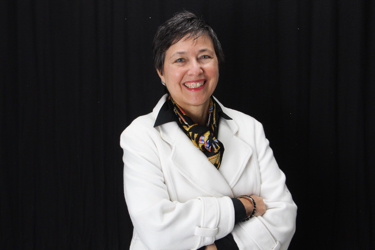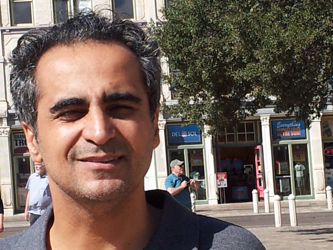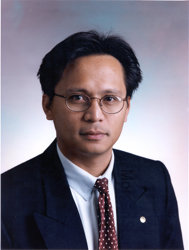Plenary Speakers

Monique Morrow
CTO – Evangelist for New Frontiers Development and Engineering, Cisco
Title: The Making of a 21st Century Technology Leader
Abstract: Through her own journey, Monique will describe the key attributes in particular passion and self-confidence, that we all need to impart to the new generation of engineers and computer scientists. Moving out of one’s comfort zone is the sweet spot for growth. Will you move yourself or will you be moved? What do you want to do with technology? These are questions Monique will pose whilst describing her journey along the way, A journey that still continues!
Bio: Monique Morrow is the CTO – Evangelist for New Frontiers Development and Engineering at Cisco as of November 2014.
Monique was the first CTO of Cisco Services from June 2013 to November 2014 where she lead the development of Cisco Services Technologies mapped to Services Customer Solution Reference Architecture that is now foundational for Cisco Customer Solutions implementation.
Monique has a track record of co-innovating with customers, that has transcended the globe from North America, Europe and Asia
Specialties: Networking technology; Grid, cloud computing, Intercloud-Federation, Internet of Things; M2M Security and E-Health; Semantic web; Business Development
Monique’s current focus in on the intersection between research - economics-technology to portfolio execution e.g. Circular and Exponential Economies as examples.

Vahid Tarokh
Harvard University
Title: Some Applications of The Theorem of Fisher–Tippett–Gnedenko
Abstract: One of the most profound results in Extreme Value Theory is the Theorem of Fisher-Tippett and Gnedenko. In spite of the fact that it is extremely powerful, it remains (in my opinion) highly under-appreciated (at least) in engineering.
I will briefly review this theorem in an elementary manner. Then I will show some applications:
a) It is well-known that Claude Shannon has computed the ultimate limit of transmission (capacity) for certain channels. However, the “ultimate throughput” of schedulers are not known. I will use the Theorem of Fisher-Tippett and Gnedenko, and derive the capacity of certain schedulers.
b) Using the same theorem, I will discuss the ultimate gain of multiuser antenna selection diversity schemes.
c) For a distributed random array (e.g. in radar or astronomy) scenario, I will indicate the distributions of the side-lobes using the same theorem.
I note that there exist “Free Extreme Values” generalizations [Ben Arous and Voiculescu] of Fisher-Tippett-Gnedenko Theorem. I may also touch on this (non-elementary) topic.
Bio: Vahid Tarokh received the Ph.D. in Electrical Engineering from the University of Waterloo, Ontario, Canada in 1995. He then worked at AT&T Labs-Research until August 2000 as Member, Principal Member of Technical Staff, and finally as the Head of the Department of Wireless Communications and Signal Processing. In Sept 2000, he joined MIT as an Associate Professor of Electrical Engineering. In June 2002, he joined Harvard University, where he is a Professor of Applied Mathematics. His current research areas are in stochastic processes, pseudo-randomness, free probability, machine learning and data analysis. He has received a Guggenheim Fellowship in Applied Mathematics (for his results on pseudo-randomness), and holds three honorary degrees.

Moe Win
Massachusetts Institute of Technology
Title: Fundamental Limits of Network Localization and Navigation
Abstract: The availability of positional information is of extreme importance in numerous wireless applications. The coming years will see the emergence of location-aware networks with sub-meter localization accuracy, minimal infrastructure, and robustness in harsh (GPS challenged) environments. To reach this goal we advocate network localization and navigation, a new paradigm that exploits a combination of wideband transmission and spatiotemporal cooperation. Our work has addressed this problem from three perspectives: theoretical framework, cooperative algorithms, and network experimentation. We will give an overview of our recent research results in this exciting field, with particular emphasis on theoretical foundation.
Bio: Moe Win is a Professor at the Massachusetts Institute of Technology (MIT). Prior to joining MIT, he was with AT&T Research Laboratories for five years and with the Jet Propulsion Laboratory for seven years. His research encompasses fundamental theories, algorithm design, and experimentation for a broad range of real-world problems. His current research topics include network localization and navigation, network interference exploitation, intrinsic wireless network secrecy, adaptive diversity techniques, and ultra-wide bandwidth systems.
Professor Win is a Fellow of the AAAS, the IEEE, and the IET, and was an IEEE Distinguished Lecturer. He is an elected Member-at-Large on the IEEE Communications Society Board of Governors (2011 - 2013). He was the Chair (2004 - 2006) and Secretary (2002 - 2004) for the Radio Communications Committee of the IEEE Communications Society. He was honored with two IEEE Technical Field Awards: the IEEE Kiyo Tomiyasu Award and the IEEE Eric E. Sumner Award (jointly with Professor R. A. Scholtz). He received the International Prize for Communications Cristoforo Colombo, the Copernicus Fellowship, the Royal Academy of Engineering Distinguished Visiting Fellowship, the Fulbright Fellowship, the Laurea Honoris Causa from the University of Ferrara, and the U.S. Presidential Early Career Award for Scientists and Engineers.
